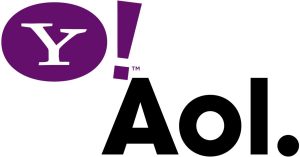Verizon announced a few days ago that it has sold AOL and Yahoo to a private equity company for $5 billion, just a few years after paying $9 billion for them. Frankly, I’m surprised the pair of online services went for that much, considering how the peak of their dominance passed long, long ago. In 1999, Yahoo alone was valued at $125 billion. The year after that, AOL was worth so much it bought Time Warner for $182 billion.
The late 1990s were the pre-Google days, when Yahoo dominated search over competitors like Excite, Infoseek, and AltaVista. The company’s “My Yahoo” page became the starting point for many of us every time we accessed the world wide web, because it offered top headlines from multiple sources, as well as easy-to-access mail accounts, local weather, sports scores, and more. That all seems pedestrian today, but at the time, it was incredibly valuable — particularly for radio hosts like me who had a daily need for more and more stuff to talk about.
Yet I remember when it became clear that the executives at Yahoo didn’t know what they were doing. It was when the company paid $5.7 billion to purchase Broadcast.com. The latter company had gone public just 9 months earlier under the leadership of Mark Cuban, who had taken a small streaming-audio platform and turned it into something of real value. I thought Yahoo would turn it into a game-changing provider of live internet audio for radio stations all over the country — which is exactly what it started to do. In exchange for streaming your station, Yahoo took no cash payment, but demanded commercial airtime in return.
Here’s where management stumbled, however. Once it had signed up hundreds of affiliates, and thus had access to air time on stations across the country, Yahoo could have turned itself into an advertising marketplace, selling those commercial avails to sponsors looking for national exposure apart from what was offered by radio news networks and sports syndicators. Yahoo would have made a mint. Unfortunately, the company used all those free spots to promote itself. Sure, that made the Yahoo yodel instantly recognizable and may have helped grow its user base, but it didn’t accrue nearly as much to the bottom line as selling commercials would have.
A few years later, when I interviewed Cuban, he confirmed that this was an idiotic move. He had seen the same opportunity and would have exploited it if he’d held onto Broadcast.com, but he was seduced by the idea of becoming a billionaire and using the money to invest in and grow other businesses.
As for AOL, it was also an internet behemoth in the 1990s, probably a major contributor to the US Postal Service’s revenue by mailing out millions of startup discs, first on floppies, then on CD-ROMs — even people without personal computers had stacks of them. But AOL’s purchase of Time Warner in 2000 indicated that management had taken its eye off the ball. The deal coincided with the lessening appeal of dial-up internet services as broadband wi-fi began to take off — a trend which also killed off other ISPs like Prodigy, Genie, and CompuServe. After a few years, Time Warner turned around and kicked AOL to the curb, where it somehow managed to continue drawing breath for another decade even as its subscriber numbers dropped dramatically.
Shockingly, according to CNBC’s Alex Sherman, there are “about 1.5 million people who still pay for AOL — but now they get tech support and identity theft services instead of dial-up internet.” That’s down from a peak of about 23 million in 2000. I’m guessing the current customer number includes no one under the age of 55, although that’s probably too low by a decade. I shake my head whenever I get email from someone who still has an AOL suffix on their e-address, wondering if they use to it log onto Friendster, MySpace, and Ask Jeeves.
A few years ago, I logged into AOL to see if my old account was still alive. It wasn’t. But I still have a few Yahoo mail addresses I use as junk folders when I’m forced to provide one for some company I’m trying out or only plan to use once or twice. I just checked those inboxes and discovered they are full of every bit of junk and spam the internet can offer. I wonder how many others also have nearly-defunct Yahoo accounts, and whether the private equity firm purchaser sees us as an asset. Even if they do, I can’t see how we’re valued at billions of dollars.
As AOL’s old login voice might say, “You’ve got nothing!”

